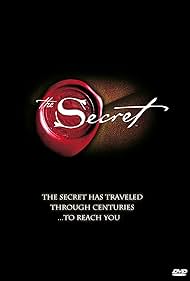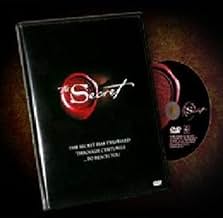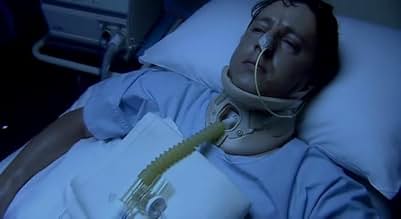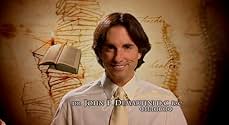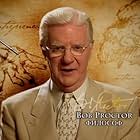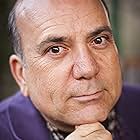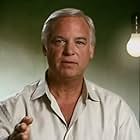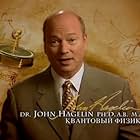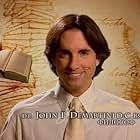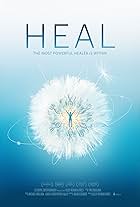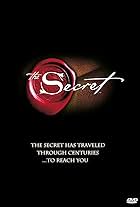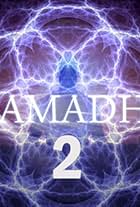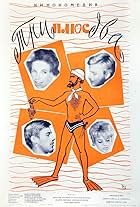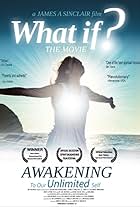Interviews with self-proclaimed authors, philosophers and scientists, with an in-depth discussion of visualizing your goals. The audience is shown how they can learn and use 'The Secret' in ... Read allInterviews with self-proclaimed authors, philosophers and scientists, with an in-depth discussion of visualizing your goals. The audience is shown how they can learn and use 'The Secret' in their everyday lives.Interviews with self-proclaimed authors, philosophers and scientists, with an in-depth discussion of visualizing your goals. The audience is shown how they can learn and use 'The Secret' in their everyday lives.
Joe Vitale
- Self - Metaphysician
- (as Dr. Joe Vitale MSC.D.)
Michael Beckwith
- Self - Visionary
- (as Rev. Dr. Michael Beckwith D.D.)
John Hagelin
- Self - Quantum Physicist
- (as Dr. John Hagelin Ph.D A.B. M.A.)
John Demartini
- Self - Philosopher
- (as Dr. John F. Demartini D.C. Bsc)
Fred Alan Wolf
- Self - Quantum Physicist
- (as Fred Alan Wolf Ph.D.)
Denis Waitley
- Self - Psychologist
- (as Dr. Denis Waitley Ph. D)
Marci Shimoff
- Self - Author
- (as Marci Shimoff MBA)
Ben Johnson
- Self - Physician
- (as Dr. Ben Johnson M.D. N.M.D. D.O.)
- Director
- Writer
- All cast & crew
- Production, box office & more at IMDbPro
Storyline
Did you know
- Quotes
Fred Alan Wolf: The last frontier is not space, as "Star Trek" would say, but it's going to be mind.
- ConnectionsFeatured in Koombiyo: Episode #1.5 (2017)
Featured review
My personal favourite piece of self-help/New Age literature is that trusty old warhorse from the late 60s/early 70s called "Zen & The Art Of Motorcycle Maintenance". The main theme that I found so inspirational in "Zen..." is the idea that goodness derives from the equal combination of romantic, surface quality and classical, underlying quality. In other words, the best things in life are those that are nice on the surface but also have real depth and substance.
It strikes me that "The Secret" scores adequately (if you like that sort of syrupy aesthetic) on the romantic, surface side of things...but falls to pieces totally if you scratch beneath the surface and analyse its underlying substance, or lack of.
I first heard of "The Secret" while having a chat with someone who said I was the most positive person they had ever met, and I MUST have studied "The Secret" to make my attitude so positive. I sheepishly told them I hadn't, in fact I had never heard of "The Secret". So, with my ego suitably inflated, I thought I'd check out this inspirational movie to see whether its philosophy indeed matched my own.
No, it doesn't. Yes, positive visualisation is a good way of starting a venture. In fact, it's a fundamental of all business strategies - ask yourself what your aims are, imagine your desired outcomes and then find a means of achieving them. But it's the finding a means of achieving them that is the stumbling block, missed out entirely by "The Secret", and the cause of the eventual fallout between me and my former admirer! You see, the person who told me how positive I was totally missed the point that real positivity comes from balancing "the secret" of visualising good things with a much more pragmatic approach to analysing the underlying nature of things. You need faith in order to be able to believe you can solve a problem, agreed. But you also need knowledge and logic. The road to hell is paved with good intentions...
"The Secret" is tailor-made for those type of people who don't like to analyse or think logically about solving problems. It encourages people to believe that success is entirely down to thinking good thoughts (does this remind anyone else of "The Twilight Zone" episode "It's A Good Life"?).
The point was brought home to me when my former admirer told me how "The Secret" gave her the idea that one can drive all the way across America in the fog with no headlights, just by the power of positive thought. That may, feasibly, be true, assuming you don't drive off a cliff or headlong into an oncoming truck. But why would you want to? And surely, even though you MIGHT be able to drive around in the dark, surely it'd be a quicker, more enjoyable and safer journey if you spent some time fixing your headlights first! That in a nutshell is the problem with "The Secret". It encourages people not to bother with science, critical thinking, rationality, understanding underlying substance, or the real nature of logical reality. To be fair, any video which was overly atheistic and cynical would be equally narrow-minded in my opinion eg some of the Richard Dawkins stuff.
If they could update "Zen & The Art Of Motorcycle Maintenance" for the new millennium - in my line of work it is Zen & The Art of Desktop I.T. Support, lol - then that would be a far superior movie and message to "The Secret". Yes it's good to have faith and positivity, but without underlying logic and reason, then it is worthless.
A couple of final notes...in the I.T. industry, disaster recovery and business continuity are essential, ie visualising worst case scenarios and finding preventative solutions. Likewise for the police, the medical profession, firemen and anyone else who has to be prepared for bad things happening in order to act rapidly and minimise harm during a crisis. Visualising the worst thing you can imagine happening is often an effective way of putting a system in place to ensure it never does happen for real. This is the exact opposite to "The Secret"!
But the worst thing of all about "The Secret" is that, of all the philosophies and religions of the world, the one it seems to have most in common with is Satanism.
It strikes me that "The Secret" scores adequately (if you like that sort of syrupy aesthetic) on the romantic, surface side of things...but falls to pieces totally if you scratch beneath the surface and analyse its underlying substance, or lack of.
I first heard of "The Secret" while having a chat with someone who said I was the most positive person they had ever met, and I MUST have studied "The Secret" to make my attitude so positive. I sheepishly told them I hadn't, in fact I had never heard of "The Secret". So, with my ego suitably inflated, I thought I'd check out this inspirational movie to see whether its philosophy indeed matched my own.
No, it doesn't. Yes, positive visualisation is a good way of starting a venture. In fact, it's a fundamental of all business strategies - ask yourself what your aims are, imagine your desired outcomes and then find a means of achieving them. But it's the finding a means of achieving them that is the stumbling block, missed out entirely by "The Secret", and the cause of the eventual fallout between me and my former admirer! You see, the person who told me how positive I was totally missed the point that real positivity comes from balancing "the secret" of visualising good things with a much more pragmatic approach to analysing the underlying nature of things. You need faith in order to be able to believe you can solve a problem, agreed. But you also need knowledge and logic. The road to hell is paved with good intentions...
"The Secret" is tailor-made for those type of people who don't like to analyse or think logically about solving problems. It encourages people to believe that success is entirely down to thinking good thoughts (does this remind anyone else of "The Twilight Zone" episode "It's A Good Life"?).
The point was brought home to me when my former admirer told me how "The Secret" gave her the idea that one can drive all the way across America in the fog with no headlights, just by the power of positive thought. That may, feasibly, be true, assuming you don't drive off a cliff or headlong into an oncoming truck. But why would you want to? And surely, even though you MIGHT be able to drive around in the dark, surely it'd be a quicker, more enjoyable and safer journey if you spent some time fixing your headlights first! That in a nutshell is the problem with "The Secret". It encourages people not to bother with science, critical thinking, rationality, understanding underlying substance, or the real nature of logical reality. To be fair, any video which was overly atheistic and cynical would be equally narrow-minded in my opinion eg some of the Richard Dawkins stuff.
If they could update "Zen & The Art Of Motorcycle Maintenance" for the new millennium - in my line of work it is Zen & The Art of Desktop I.T. Support, lol - then that would be a far superior movie and message to "The Secret". Yes it's good to have faith and positivity, but without underlying logic and reason, then it is worthless.
A couple of final notes...in the I.T. industry, disaster recovery and business continuity are essential, ie visualising worst case scenarios and finding preventative solutions. Likewise for the police, the medical profession, firemen and anyone else who has to be prepared for bad things happening in order to act rapidly and minimise harm during a crisis. Visualising the worst thing you can imagine happening is often an effective way of putting a system in place to ensure it never does happen for real. This is the exact opposite to "The Secret"!
But the worst thing of all about "The Secret" is that, of all the philosophies and religions of the world, the one it seems to have most in common with is Satanism.
Details
- Runtime1 hour 30 minutes
- Color
- Sound mix
Contribute to this page
Suggest an edit or add missing content
